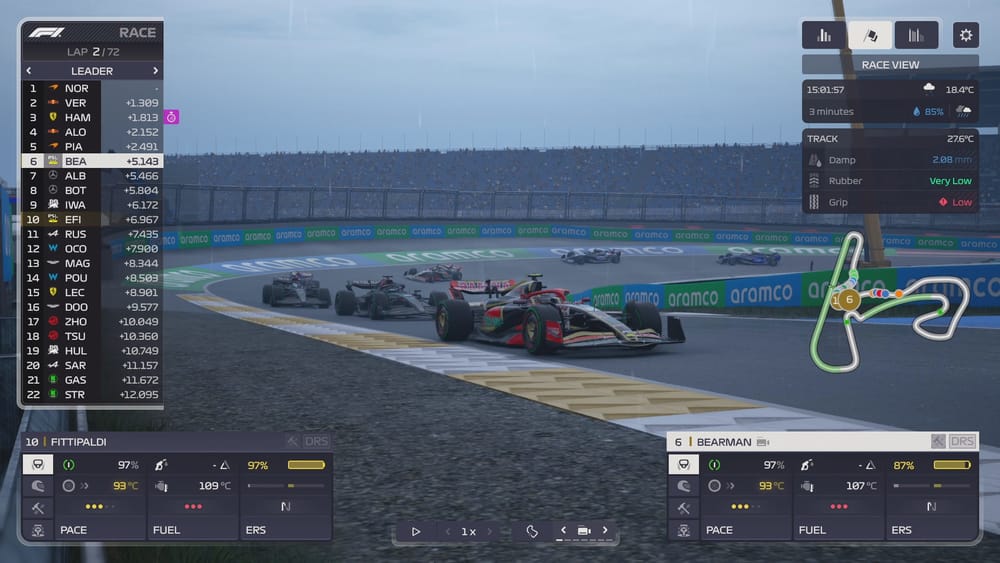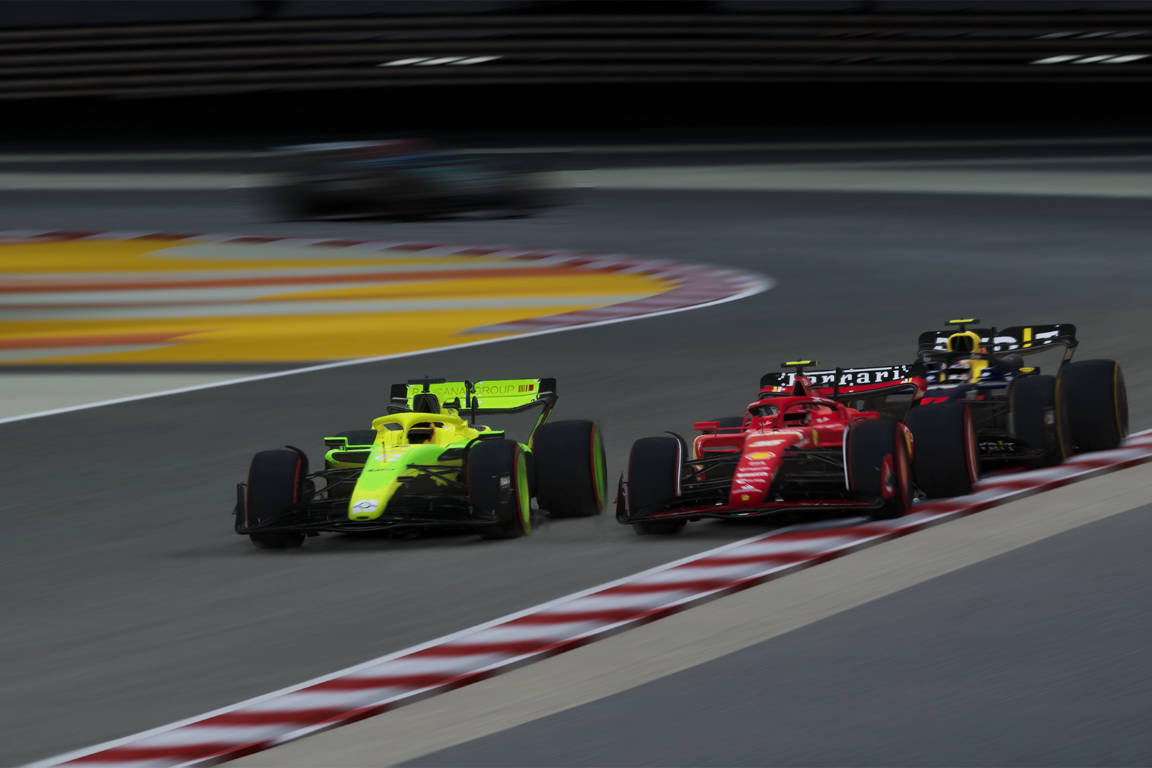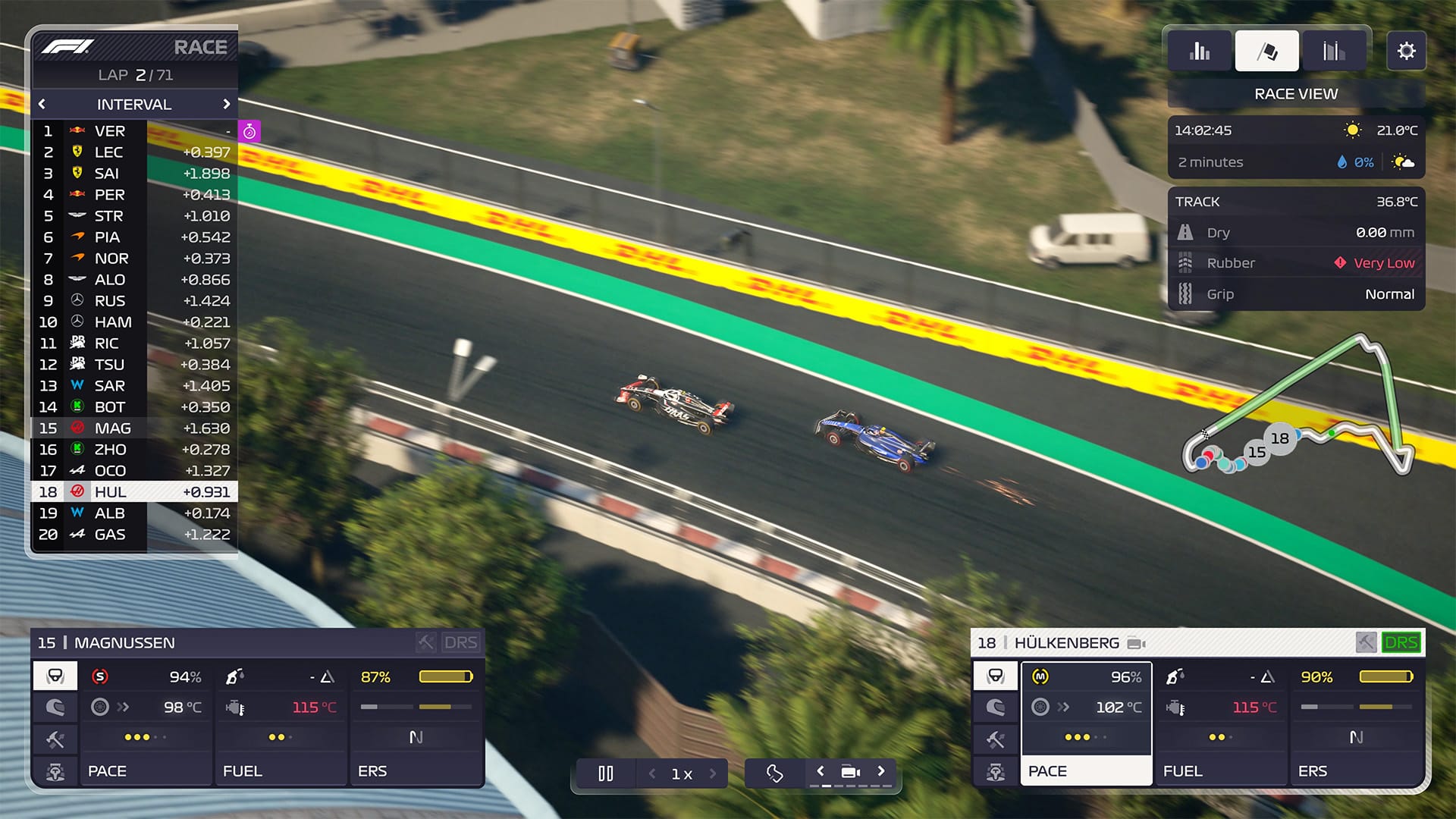Up Next

Internal financial reports from Frontier Developments suggest that F1 Manager 2024 will be the final game to be released in the series.
Frontier's licence with Formula 1 was due to run from 2022 to 2025, but it now appears next year's entry will not come to fruition.
The demise of the franchise is not a major shock given sales didn't meet the developer's expectations and that was partly responsible for staff layoffs that started late last year.
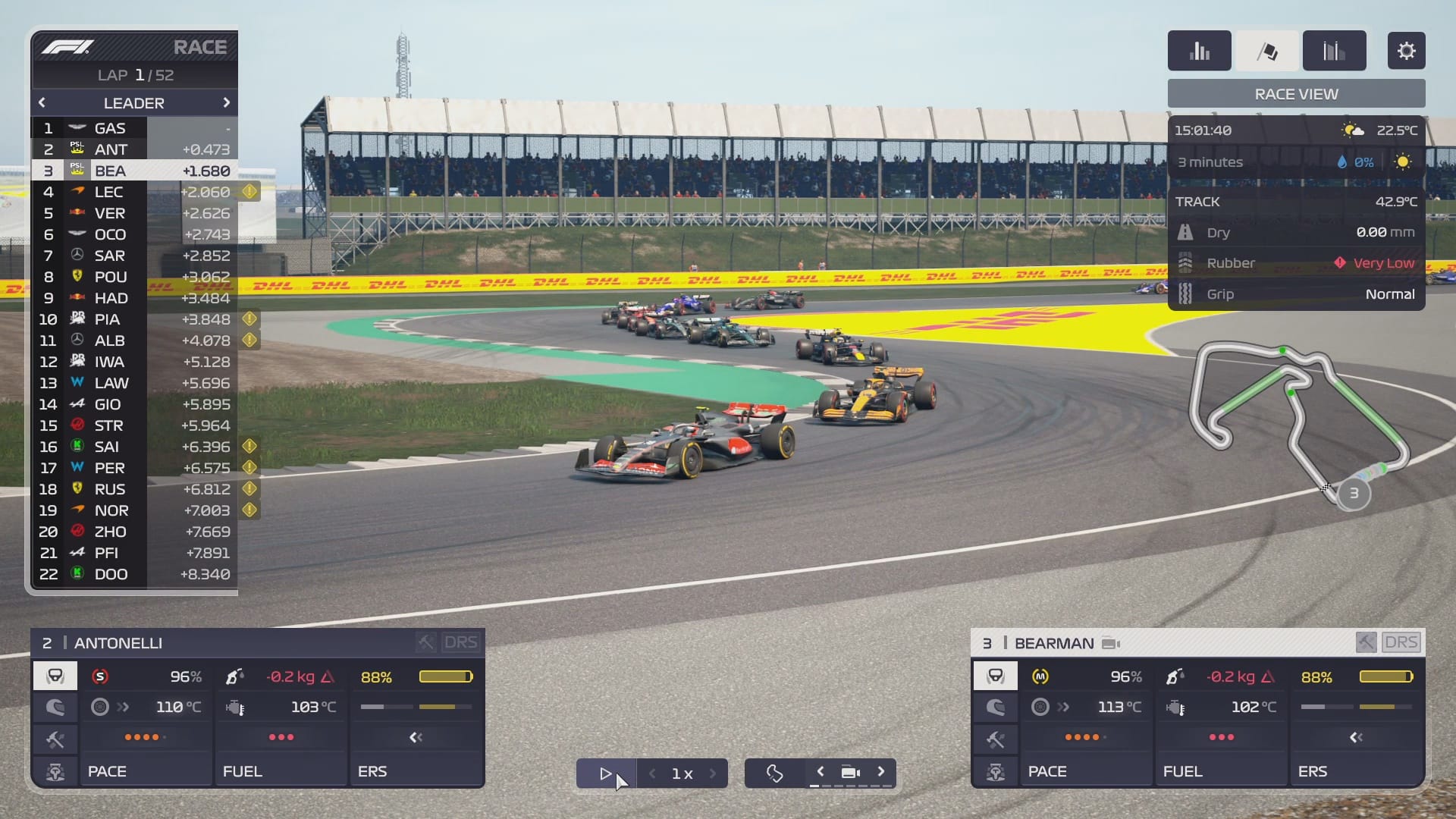
However, the series not running its full contracted length speaks to just how badly the series has flopped.
There's two ways of looking at the F1 Manager story: the first is that it was an overambitious project unlikely to perform well commercially given its niche appeal; and the second is that it was a series which never lived up to its potential.
Of course it's easy to say with hindsight that the F1 Manager series was unlikely to last long-term, but the clues were there from the start as each release had a lukewarm reception at best - and it's not hard to see why.
The series' missed potential
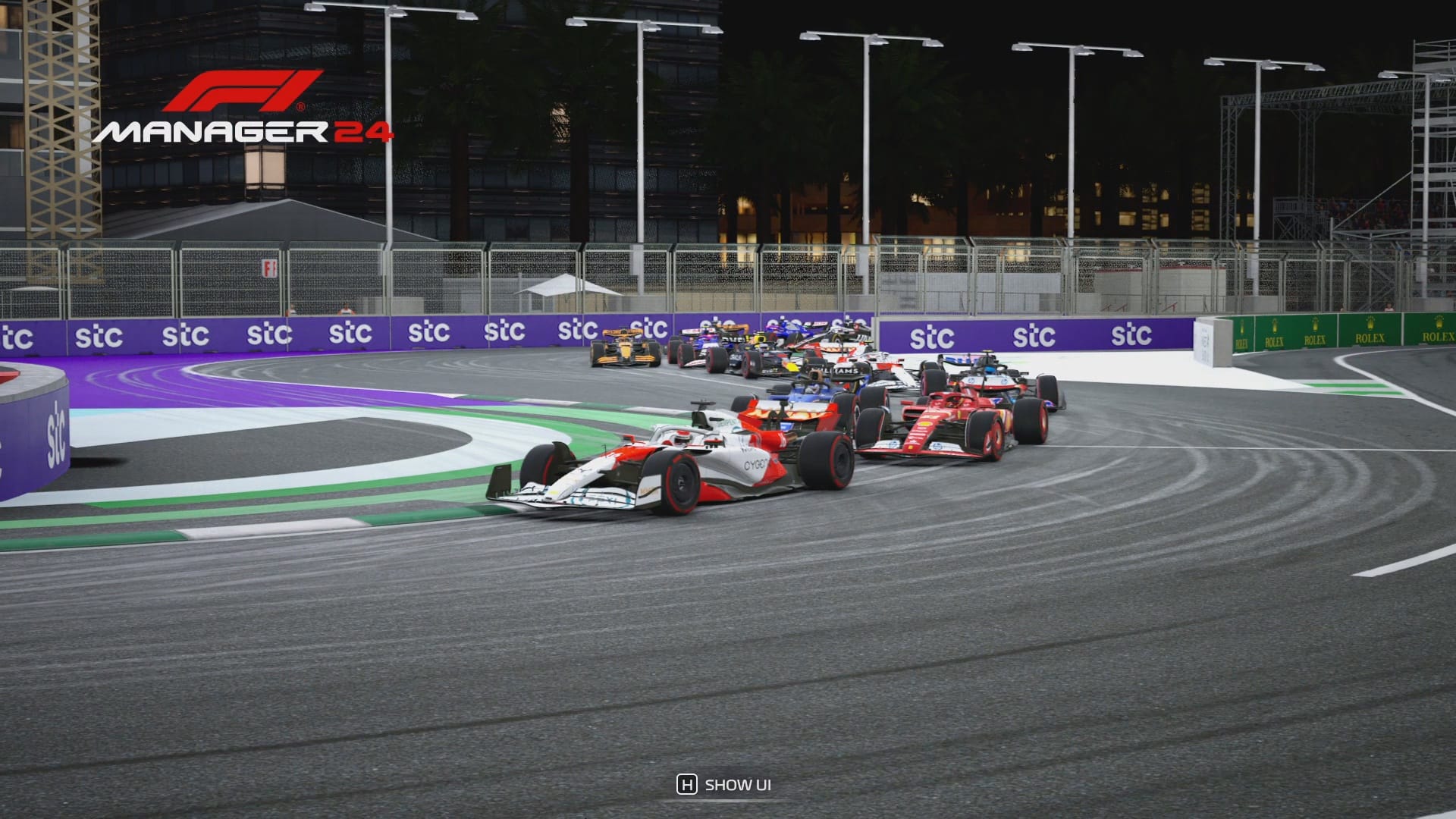
It's worth remembering just how much hype there was from F1 and racing game enthusiasts ahead of F1 Manager 2022's release.
A few tweets got huge engagement, with the most popular one just being a simple screenshot of an onboard angle from Red Bull at a wet Baku. That one tweet received in excess of 20,000 likes, such was the pre-release excitement for F1 Manager 2022.
Do you think it's time to switch to Inters? 🤔
— F1® Manager (@F1Manager) June 3, 2022
See you next week!#F1Manager pic.twitter.com/YtqXb4nw2U
That initial interest faded almost immediately, though, once players got their hands on F1 Manager. What they found was a game lacking in any real depth to any aspect of managing an F1 team. Whether that was in terms of car development, finances, or the day to day running of your chosen outfit.
The strategy for building a race-winning team was simple: do as much car development as you can at the start of the year until next year's ruleset is revealed, then do as much research as you can for next year's car...and that was pretty much it.
There was no jeopardy or possibility to go wrong, such as by choosing an inferior design philosophy ahead of a rule change and having to play catch-up to teams that went the right way with their car design.
Praise does have to be given for the graphics and overall presentation of the on-track action which, while it may not compare well to the mainline F1 games developed by EA and Codemasters, was impressive for a management game series.
There was no doubt a lot of effort and hours put into the game's radio messages, all of which are taken from real F1 radio chatter, with 30,000 added for F1 Manager 2024 alone taking the total in the game up to a claimed 70,000. That doesn't change the fact that the radio chatter you hear very quickly feels very repetitive unless you change your drivers/race engineers every season.
It always felt as if Frontier never fully understood what the priorities should be for an F1 management game and what earlier F1 and motorsport management games got right. Making graphics and audio two of the main focuses fundamentally misses the appeal of a management game.
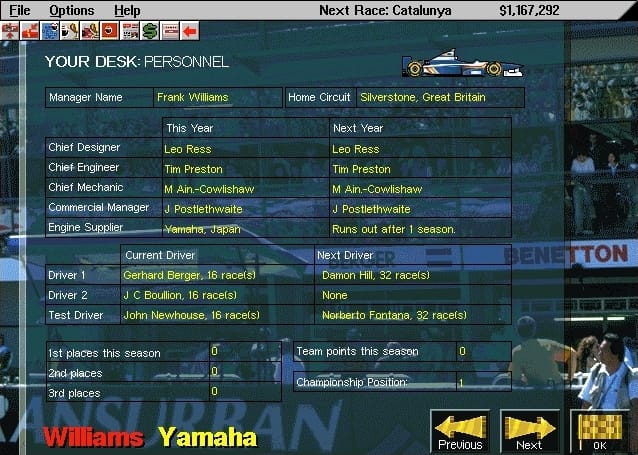
The Grand Prix Manager (GPM2 pictured above) titles and latterly Grand Prix World were released in the 1990s and paid great attention to the various off-track struggles of running an F1 team.
If you were a cash-strapped backmarker then money was hard to come by and bankruptcy very much possible. There was also greater freedom to develop the car, in legal and illegal ways and, since personnel were graded on a scale from 1-5 rather than 1-100 in the Frontier developed F1 Manager games, any changes in staff ratings had far more impact.
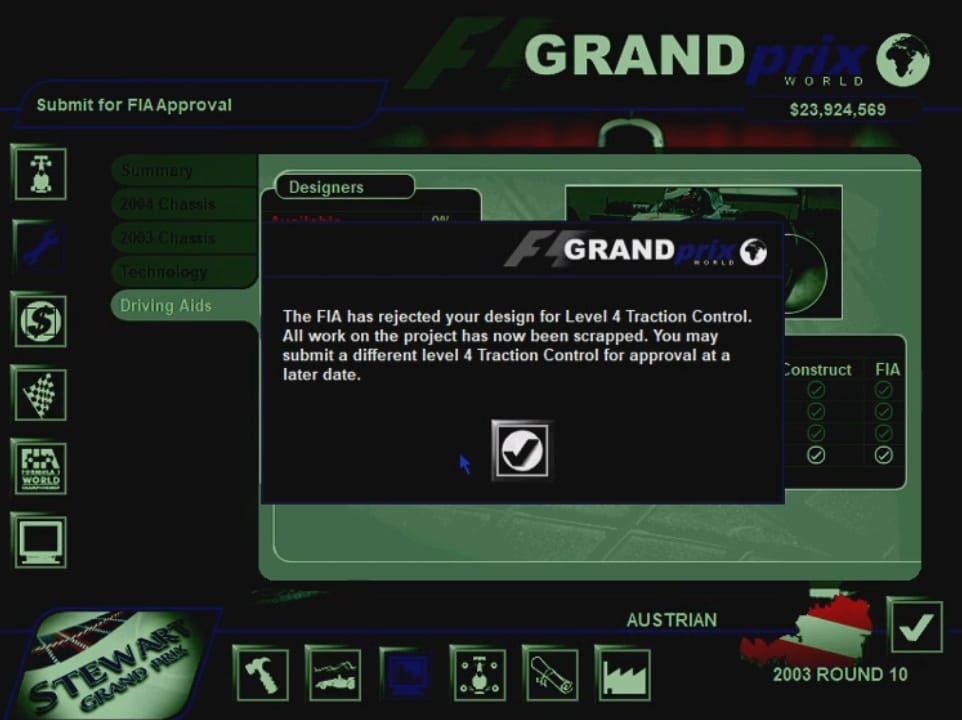
It isn't entirely fair to compare the modern F1 management games to those from three decades ago. Even the most recent of those highly acclaimed titles, Grand Prix World, was based on the 1998 F1 season and the changes in both the gaming market and F1 between 1998 and 2024 are numerous and extensive.
If anything, though, the cost-cap era of F1 should be a great basis for a management game since it should require you to be resourceful and considerate with your spending.
But in practice it's almost a non-factor in F1 Manager because it isn't too hard to stay within it and not massively consequential if you do stray over. The punishment in-game is only a fine equivalent to the amount you breached the cap by.
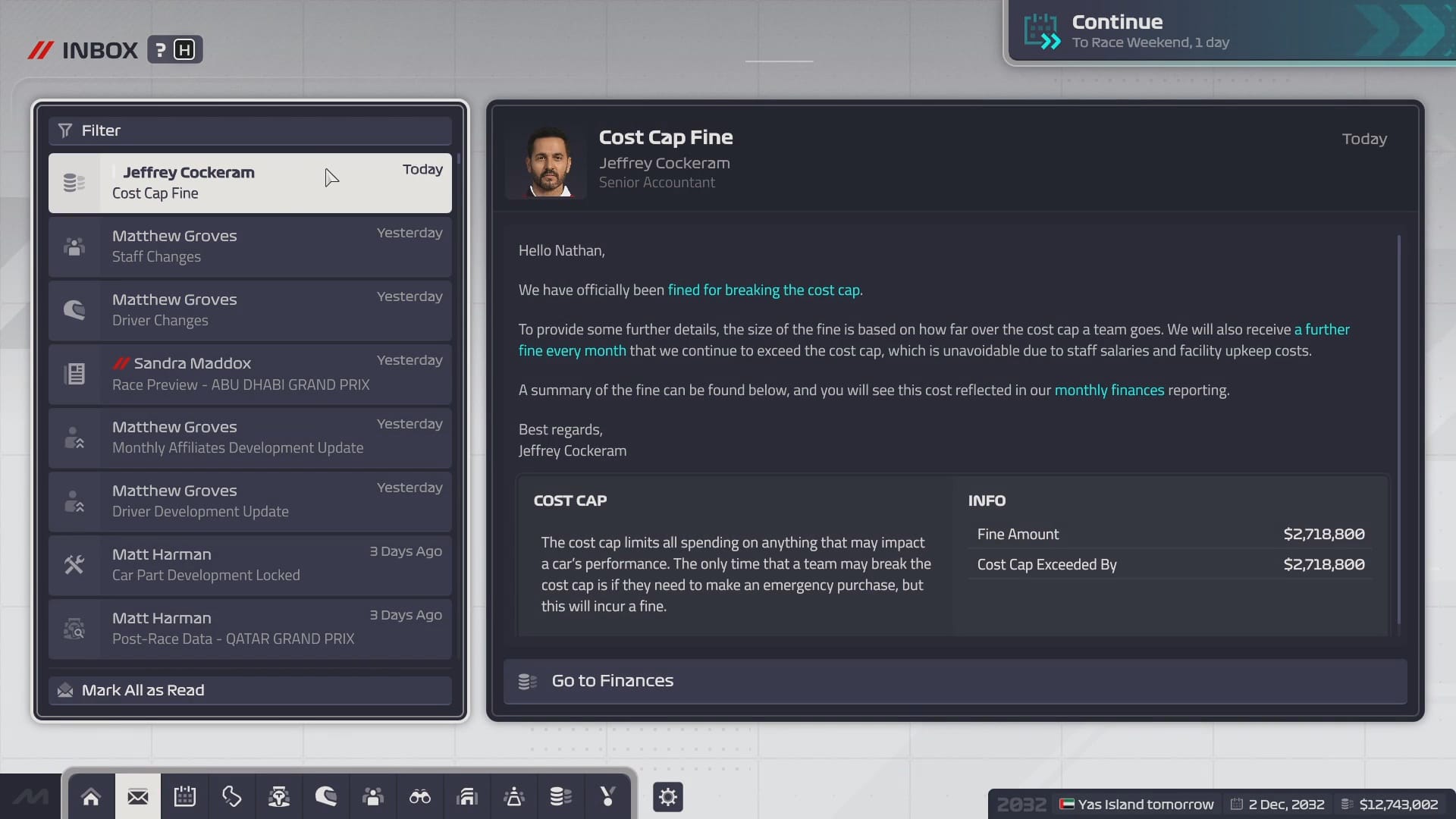
A lack of depth and therefore a lack of difficulty both on- and off-track were recurring issues in the F1 Manager series.
If there's anything to be learned from the hugely successful Football Manager game series, it's that giving players control over every granular detail of running a team and replicating those systems as accurately as possible in video game form is what gives that series its enduring appeal and makes it so moreish.
By contrast, so many key aspects of F1 were either absent from the F1 Manager games for a long time or were implemented incorrectly.
Mechanical failures were finally included in F1 Manager 2024, pitlane starts were added earlier this month, ATR allowances reset every year in game rather than every six months as in real-life, additional engine components and unused spare parts wrongly count towards your team's cost cap, there's no way to directly promote an affiliate driver in your academy into a race seat, and it is possible for the same driver to win in either Formula 2 or Formula 3 multiple years in a row.
The few people who were passionate enough about both management games and F1 are exactly the sort of people who will notice and care about these inaccuracies much more so than how many radio messages are in the game.
If you can't win them over then you'll struggle to convince anyone else to be interested, especially given the anti-climax of the first game.
Was F1 Manager ever likely to succeed?
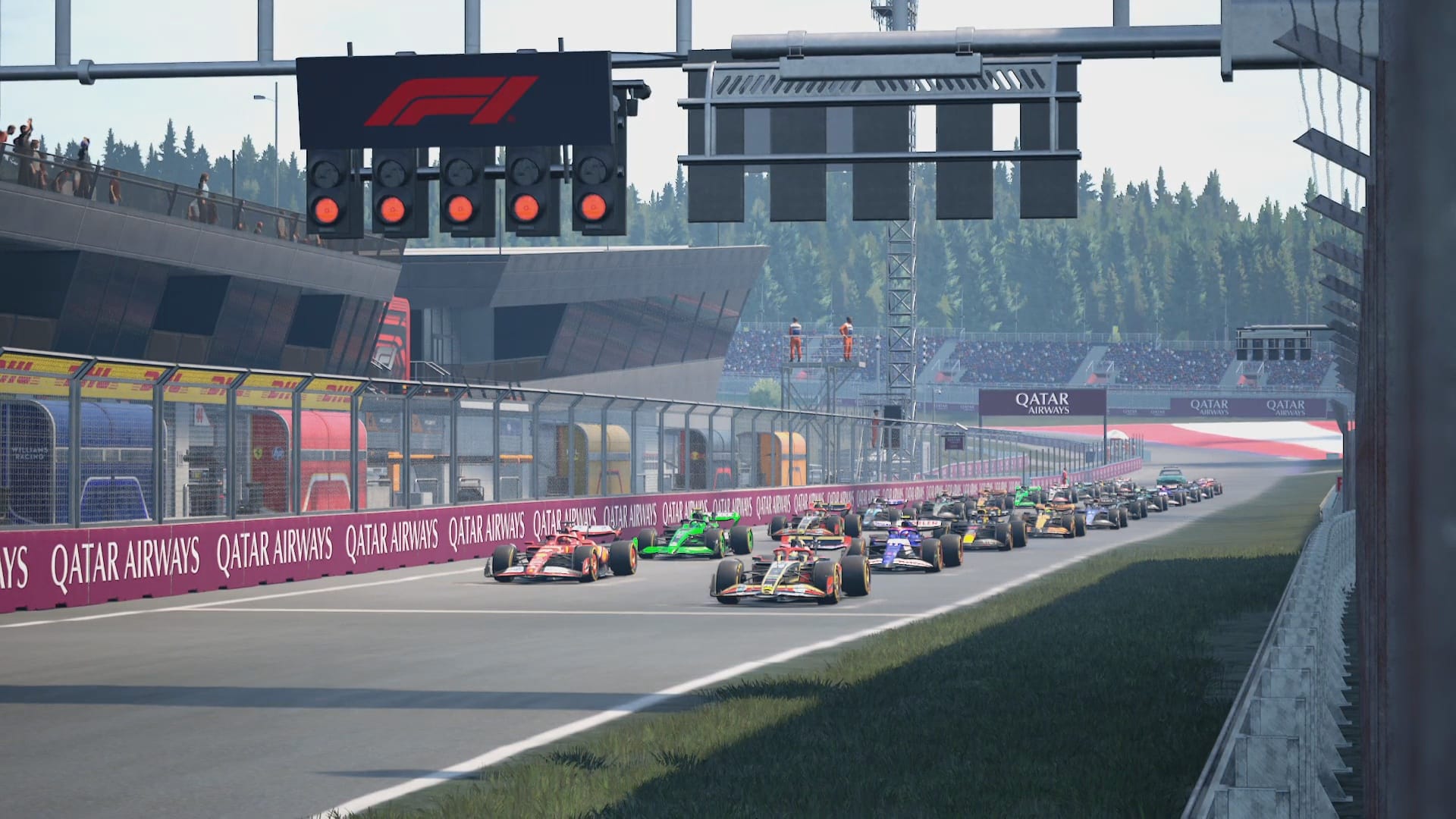
Hindsight is 20:20 so it's easy to say now that we were sceptical about the long-term success of the series, but that made us no less excited about the release of these games ever since the series was first announced in March 2020.
The writing was on the wall though with the fact that the PC Motorsport Manager game, released in November 2016, was reviewed well by players but never got a sequel as the developers had turned their attentions to the more lucrative mobile game market instead.
Before Frontier's F1 Manager 2022 came out the most recent licensed management title was 'F1 Manager' published by EA and based on the 1999 F1 season. It was a critical and commercial flop.
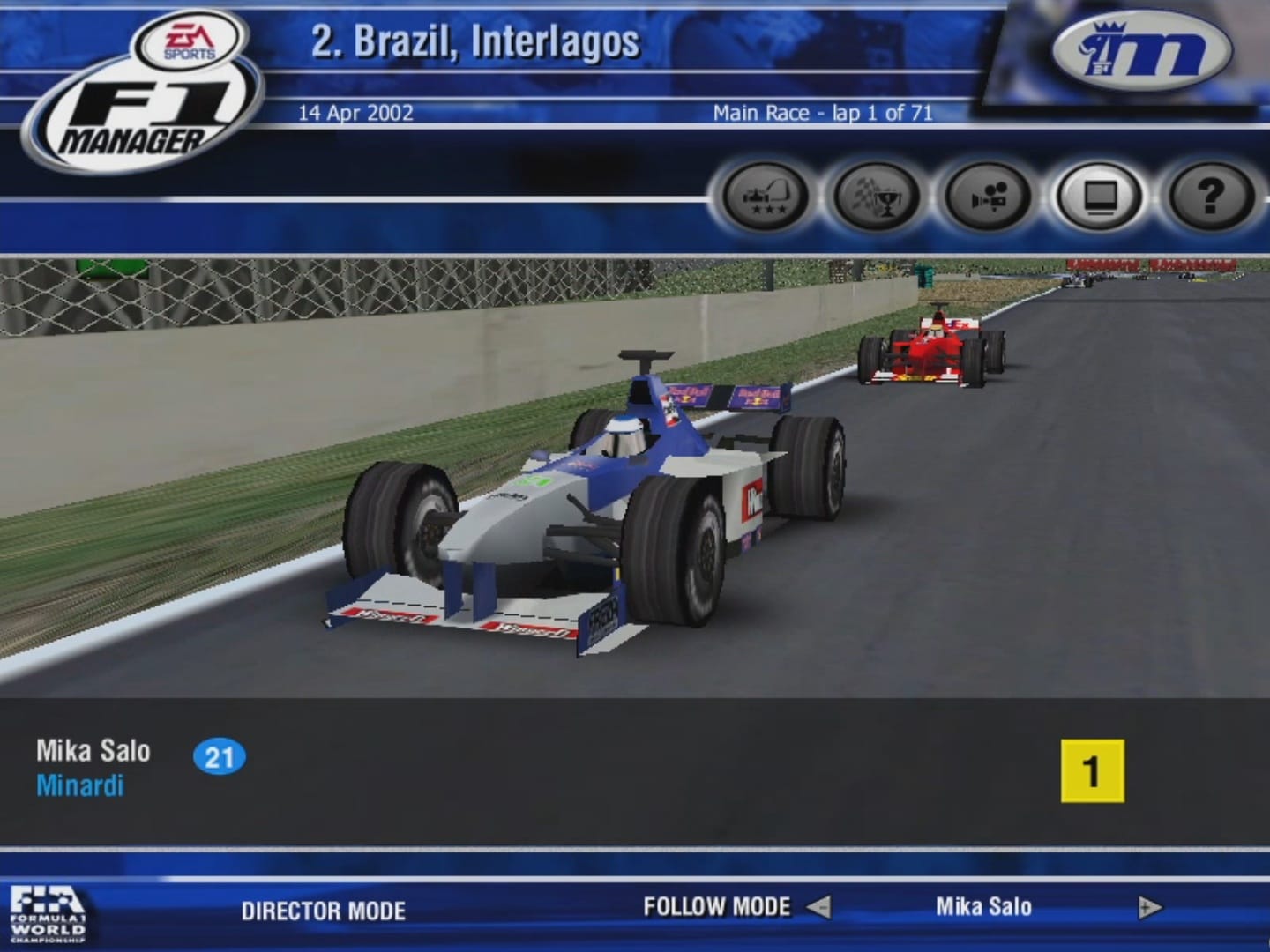
The regular F1 games already exist as a niche within the broader racing game genre, therefore a management game based around F1 is a niche within a niche.
Selling enough copies to make it commercially viable, especially when Frontier had to shell out for a costly F1 licence, was always going to be an uphill battle.
Frontier's timing was perfect though as the first game was riding off the back of F1's boom in popularity during the pandemic and the hugely exciting 2021 season.
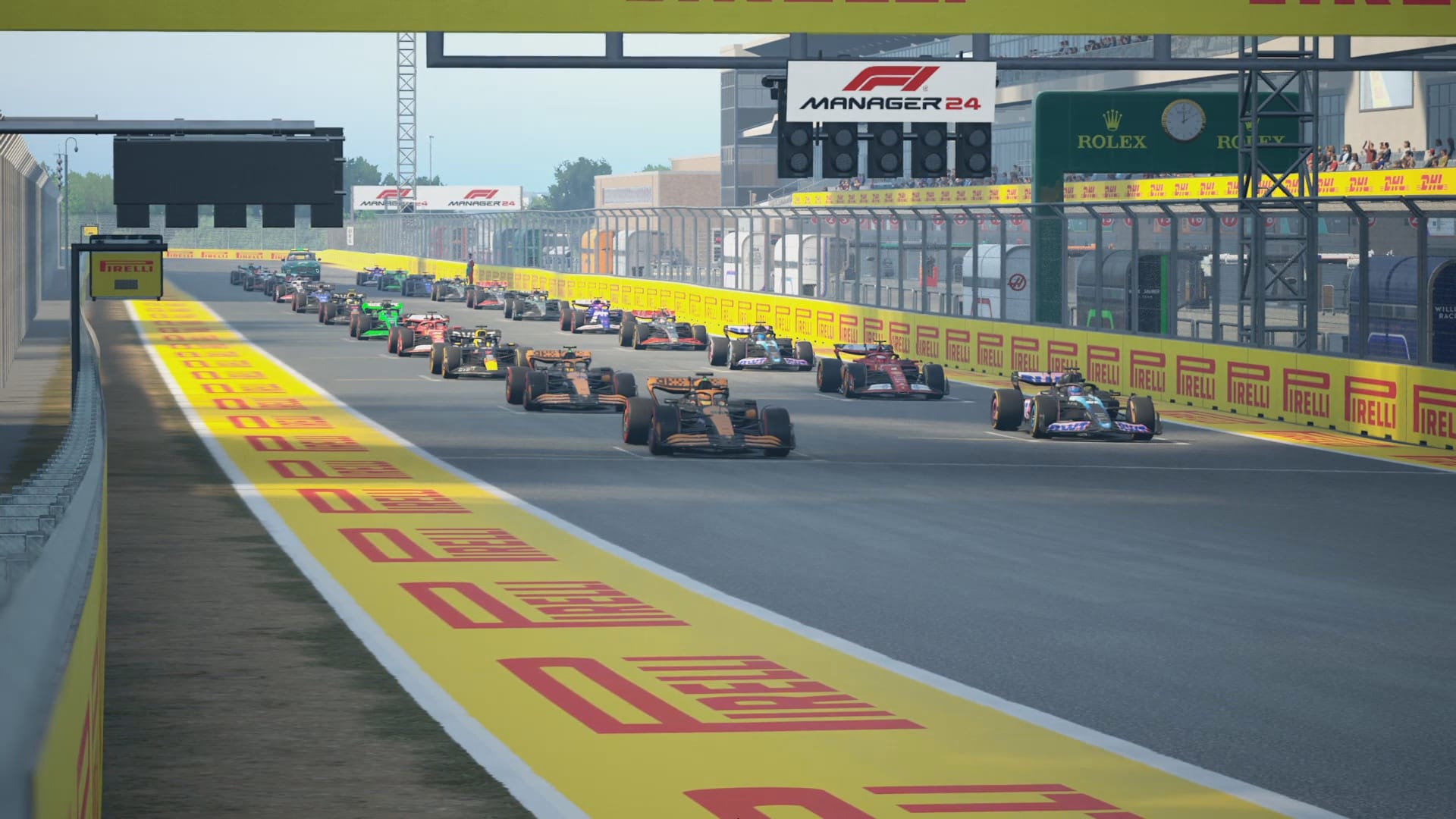
This was also when player opinion for the regular F1 games developed by EA and Codemasters began to slide. F1 22 was largely considered to be a downgrade on the previous year's title and subsequent issues with the series have caused a drop in sales year-on-year from F1 22 to F1 24.
Theoretically this was a fantastic opportunity for Frontier to swoop in with its new take on F1 video games, and capitalise on the newfound popularity of F1 and the declining interest in the regular F1 games. Had the F1 Manager games been received more favourably it might even have worked out.
SteamDB, which tracks players numbers for each game on Steam, shows that F1 Manager 2022 had a similar peak simultaneous player count to EA and Codemasters' F1 22 of around 25,000 players.
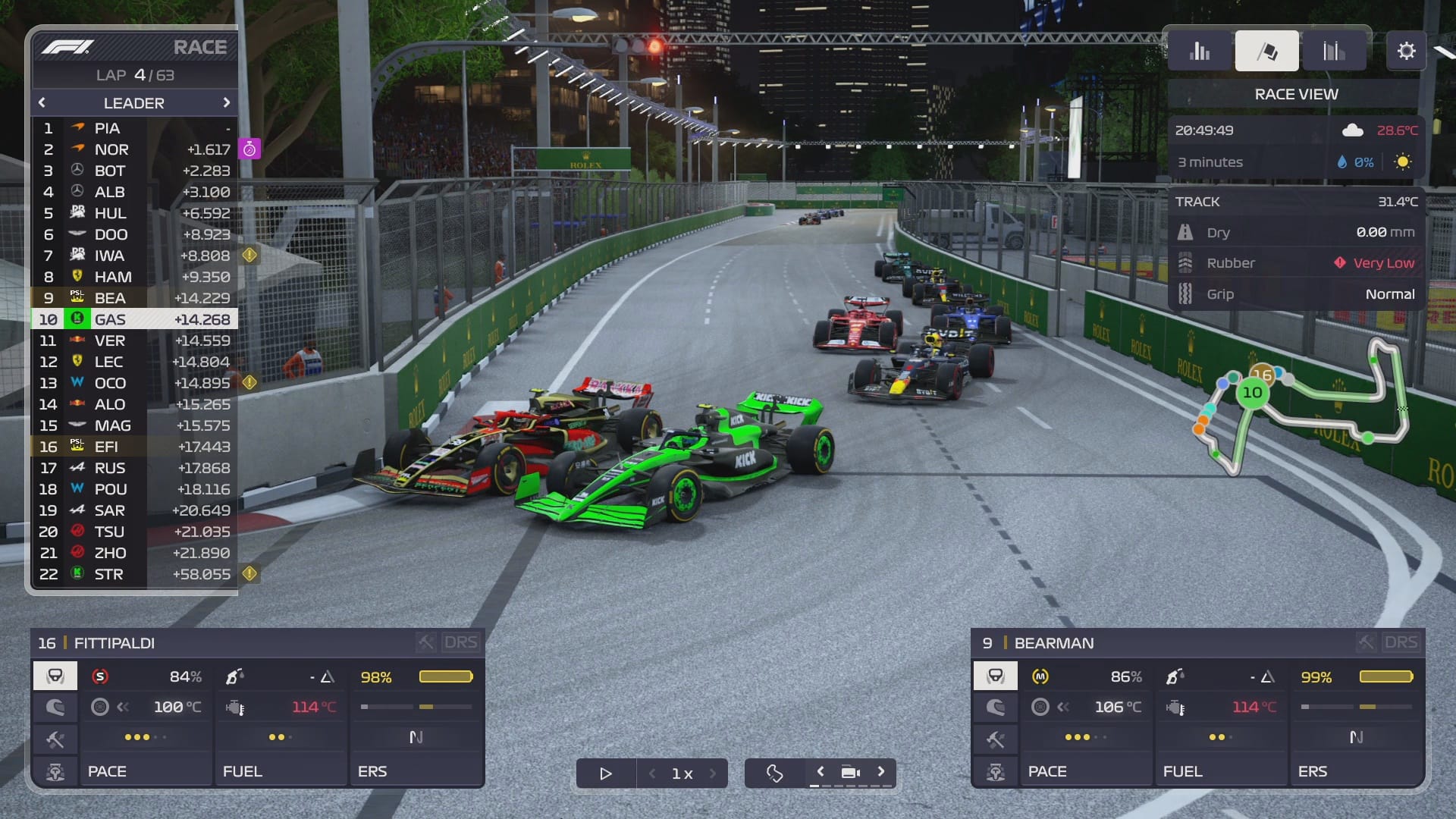
The difference is the drop off, as F1 Manager 2022 sunk to around 3000 concurrent players in December that same year, a figure F1 22 didn't fall down to until July 2023, which was the first full month after F1 23 was released.
Both series had a drop in player counts for the following year, a peak Steam player count of 14,512 for F1 23 compared to just 6429 for F1 Manager 2023.
Big new game features such as the ability to create your own team helped lift the F1 Manager series back up, but only to a peak of 12,066 for F1 Manager 2024. At the time of writing, that has fallen to around 2000 concurrent players.
It's worth stressing that these are PC-only player numbers, but that almost certainly paints a bleaker picture of the F1 Manager series.
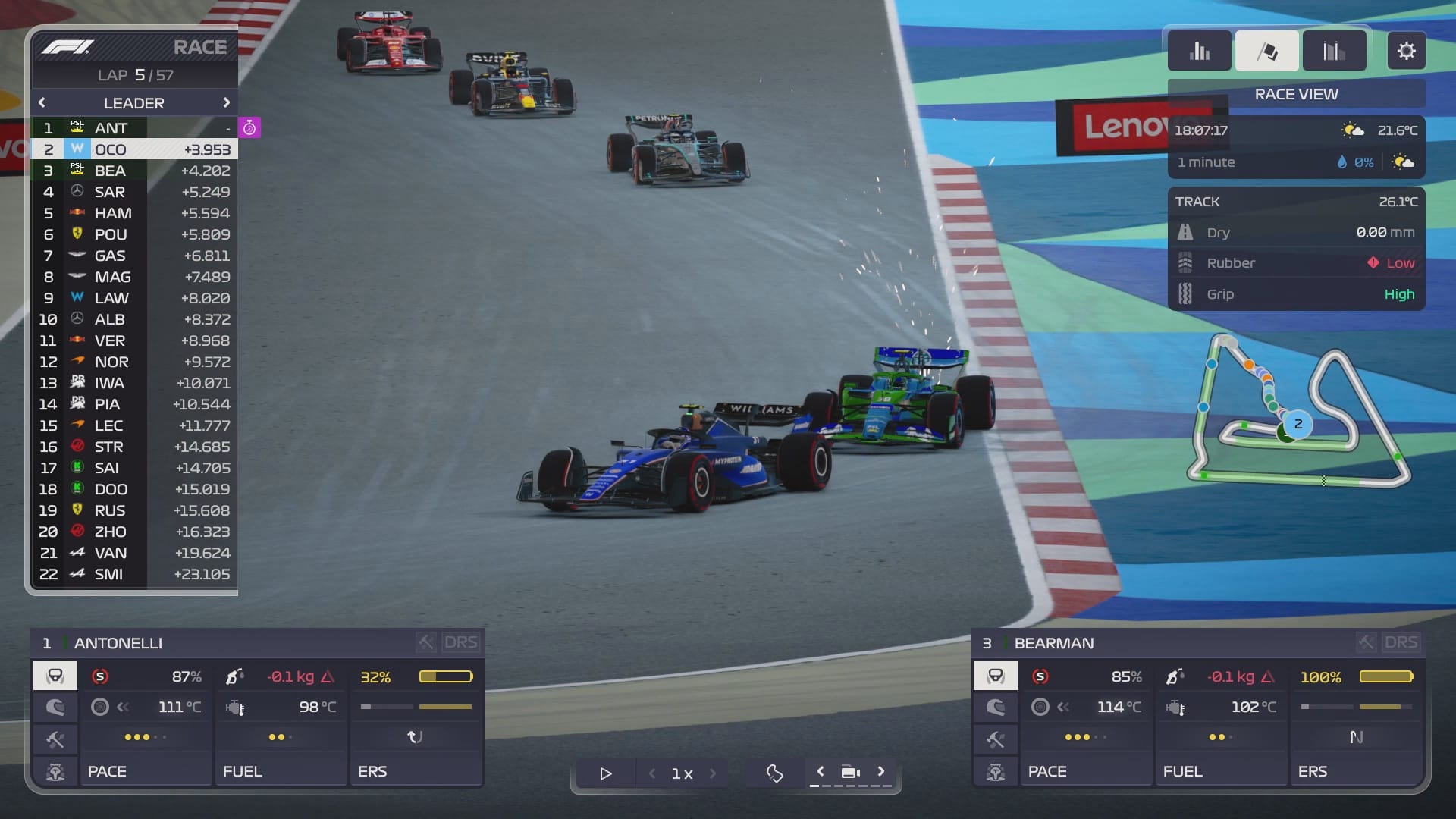
Management games typically have a higher percentage number of players on PC compared to consoles. F1 Manager is likely to be no different in that regard especially considering F1 Manager 2024, unlike its two predecessors, didn't have a physical release on consoles.
It's easy to see why Frontier Developments have pulled the plug on the franchise early. There's a continued lack of interest, and even a reduced retail price for this year's game hasn't yielded the sort of player numbers required to make the series commercially viable.
That makes F1 Manager no less sad of a loss from the racing game scene. For all of its flaws, and there were countless issues and areas it should've executed better, we still had fun playing through to the next decade and being an active part of the change in F1 during that time.
It's a shame that we appear to be at the end of the road for the F1 Manager series.


